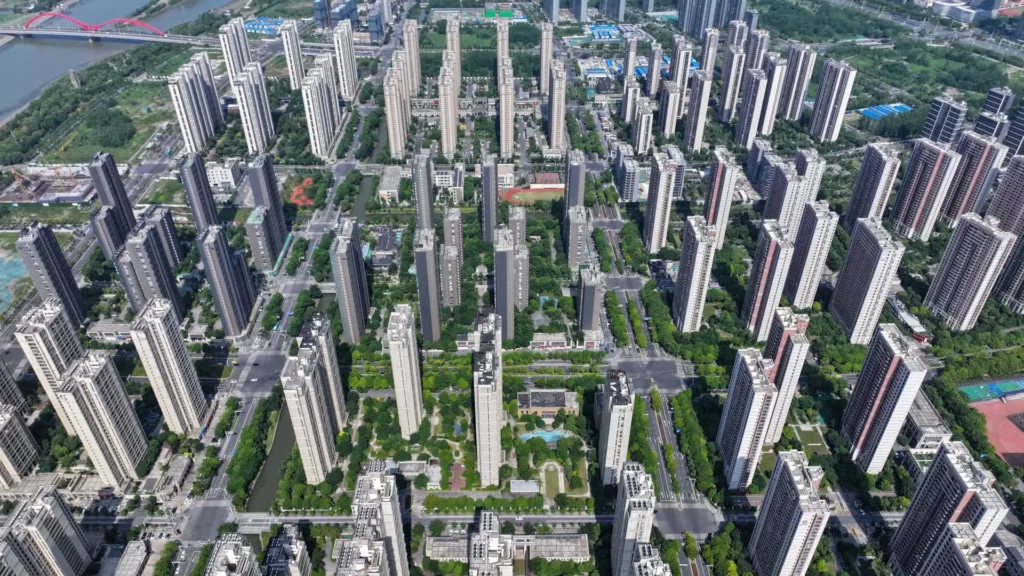![]()
Chinese authorities have recently introduced new measures to support state-owned enterprises (SOEs) in buying unsold apartments, in a move to assist developers in gaining more funding to complete construction projects. This support is aimed at addressing various issues within the real estate sector, which has been facing challenges in recent years. These efforts mark a turn in direction towards supporting the housing market, according to experts in the field.
The People’s Bank of China announced that it would provide 300 billion yuan ($42.25 billion) to financial institutions to lend to local SOEs for the purchase of unsold apartments. This initiative is expected to release 500 billion yuan in financing for such transactions, with the potential for turning these properties into affordable housing. In addition, the central bank highlighted that real estate companies can utilize the funds earned from these sales to complete construction on other apartments, further supporting the sector.
The government’s intervention as the buyer of the last resort has been seen as a positive step by experts, as it injects more liquidity into the market. This move provides developers with additional resources for housing delivery and completion of projects. However, there are concerns about the limited resources of local governments and SOEs to implement these policies effectively. Experts believe that further efforts may be needed from the central government to have a significant impact at the macro level.
A recent national videoconference meeting emphasized the importance of ensuring the completion and delivery of pre-sold homes. Officials stated that housing projects failing to meet the requirements for whitelisted programs must address their issues independently. The emphasis was placed on prioritizing homebuyers’ interests and rights, while holding accountable those that violate the law. The Ministry of Housing and Urban-Rural Development reiterated the need for restructuring or bankruptcy for developers based on their financial condition.
While the recent measures aim to address real estate challenges in China, there are still limitations and challenges to overcome. Local governments face constraints due to limited fiscal resources, which can impact their ability to purchase unsold properties. Concerns about rent-seeking and moral hazards in decision-making processes have also been raised by experts. Additionally, the affordability of housing prices in relation to household incomes remains a significant issue that needs to be addressed by the government.
The People’s Bank of China’s decision to remove the floor on mortgage interest rates and lower the minimum down payment ratio for home buyers is expected to have implications on the real estate market. With delays in the completion of pre-sold apartments and an excess stock of new homes, the market is facing challenges in clearing existing inventory. Experts predict that it may take more than two years to resolve the current stock overhang, indicating a slowdown in the market’s performance. The overall house price index has seen a decline, reflecting the changing dynamics of the real estate sector in China.
The Chinese government’s initiatives to support SOEs in the real estate market are aimed at addressing key challenges and ensuring the completion of housing projects. While these measures have the potential to inject liquidity and stability into the market, there are still uncertainties and obstacles that need to be overcome. By focusing on sustainable solutions and aligning policies with market dynamics, China can navigate through its real estate issues and achieve long-term growth and stability.

Leave a Reply